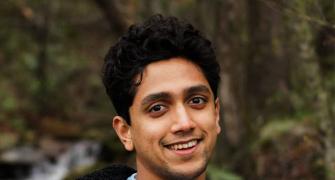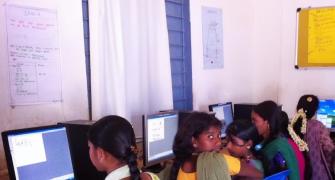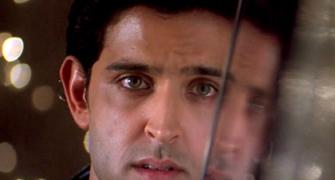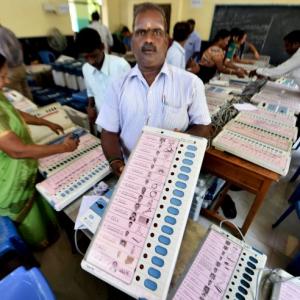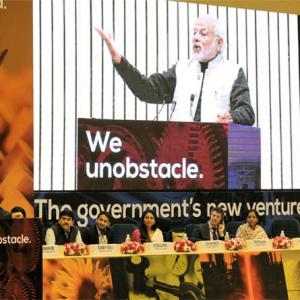598 problems.
7,531 possible solutions.
10,000 students.
Vivek Kulkarni takes us through the making of the 36-hour mega event.
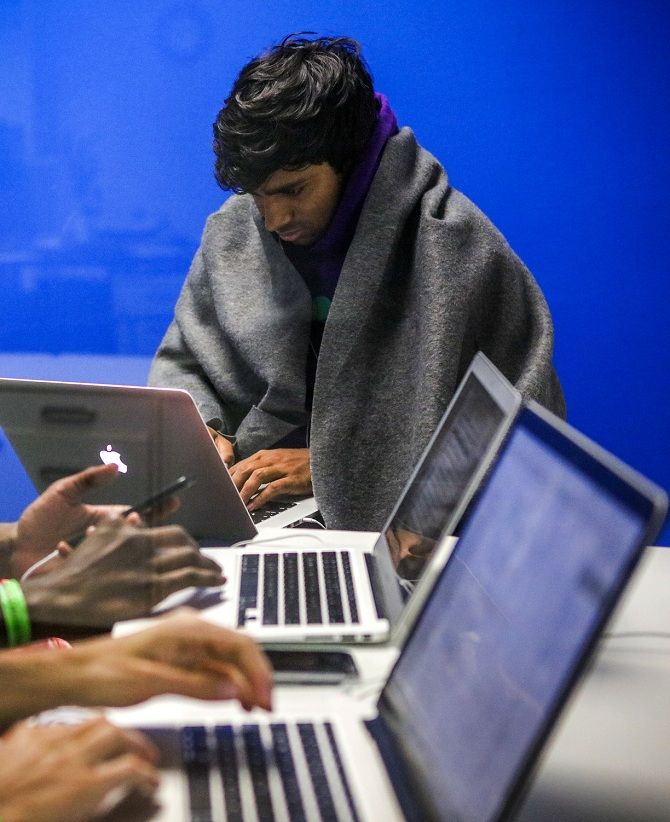
Photograph published only for representational purposes.
Photograph: Gabrielle Lurie/Reuters
29 Indian ministries with 598 problem statements that needed solutions.
40,000 students from 2,200 participating colleges with 7,531 submitted ideas.
1,266 selected ideas, shortlisted by 402 evaluators across the globe.
10,000 final participating students.
50+ IT organizations.
1,700 mentors.
Thousands of staff/student volunteers who worked 24/7.
26 nodal centres/cities in India.
36 simultaneous hours of coding.
And 1 event -- the Smart India Hackathon 2017.
Smart India Hackathon 2017 was envisioned to promote innovation and out-of-the-box thinking in young minds, especially engineering students.
It was focused on problems of social importance identified by 29 ministries and departments of the Government of India.
I still remember the day I got involved in this initiative. It was, I admit, a bit scary.
Initially, the response from the students and colleges was not very encouraging, but we were soon able to build up traction by conducting Facebook Live sessions for them. We had planned only a few sessions at first, but ended up conducting close to 20.
The response from the students was heartening, leaving us with no doubt that the technology students from India were ready to make that big leap.
Within a few weeks we received 7,531 ideas to solve the 598 problems given by the ministries.
The overwhelming student response and their activity on social media kept us on our toes.
Evaluating 7,531 ideas was a mammoth task.
We involved many IT experts across the globe, including the ministry domain experts to do so.
With the evaluators being spread across multiple locations and time zones, it was difficult to get everybody on the same page as far as the evaluation process was concerned.
But hats off to the 402 evaluators -- including my own team at Persistent Labs -- who made it possible for us to get at least 9 opinions about each idea that was submitted.
Thanks to all the hard work put in by the evaluators we were able to do justice to every single idea, and shortlist 1,266 final ideas.
The next challenge was deciding the different locations for the final hackathon, organizing the event at all these locations, setting up the process and educating the different centres to achieve the same experience throughout.
It took multiple rounds of discussion to decide everything from the programme schedule, the final evaluation process, the judges to details like mentoring, food, and yoga/Zumba sessions at the venue.
Dr Abhay Jere, who heads Persistent Labs, played a pivotal role in making it work.
The grand finale begun at 7 am on April 1.
The experience was as exhausting as it was energising.
The energy was especially amplified when Prime Minister Narendra Modi addressed the aspiring innovators through video conference at 10 pm on Day 1; the live interaction gave them the energy boost they needed to see them through to the end of 36 hours -- at 9 pm on April 2.
The top three solutions developed during the final hackathon were awarded ₹1 lakh, ₹75,000 and ₹50,000, respectively.
Two more prizes were given by Persistent Systems Ltd and Deloitte India.
There are about 135 other prizes comprising of about ₹70 lakhs.
This is not the end.
The ministries are ready to further fund selective projects and convert them into finished products.
The effort will begin as early as next month, and the handover of these products and their actual use by the ministries is expected to start by the year end.
Smart India Hackathon 2017 not only harnessed the creativity and expertise of the students, but also built the funnel for 'Startup India, Standup India'.
These crowd-sourced solutions will help improve governance and quality of life, and provide young citizens of our country an opportunity to co-create and present innovative solutions to India's daunting problems.
Vivek Kulkarni is the chief architect, Persistent System Ltd. He tweets at @v_d_k


